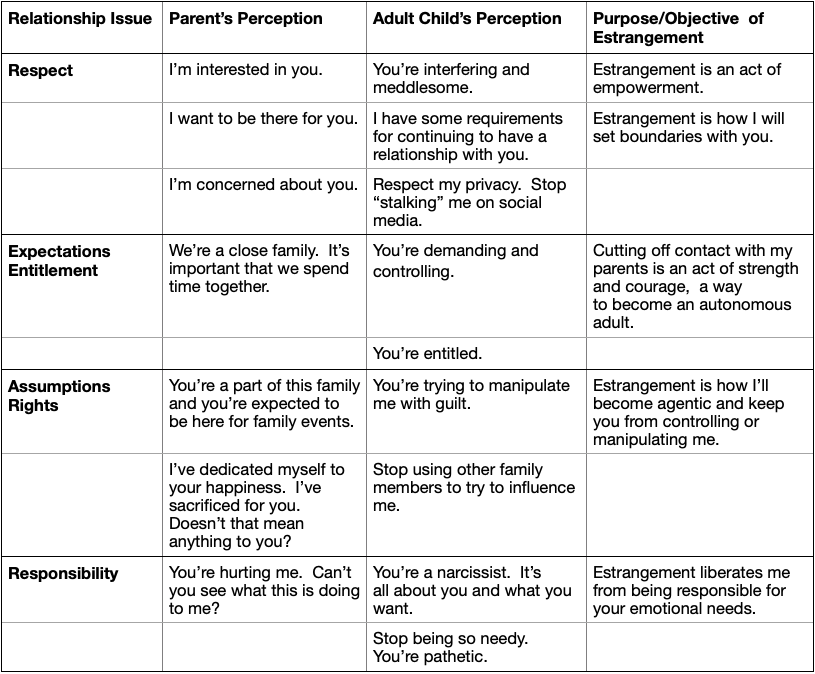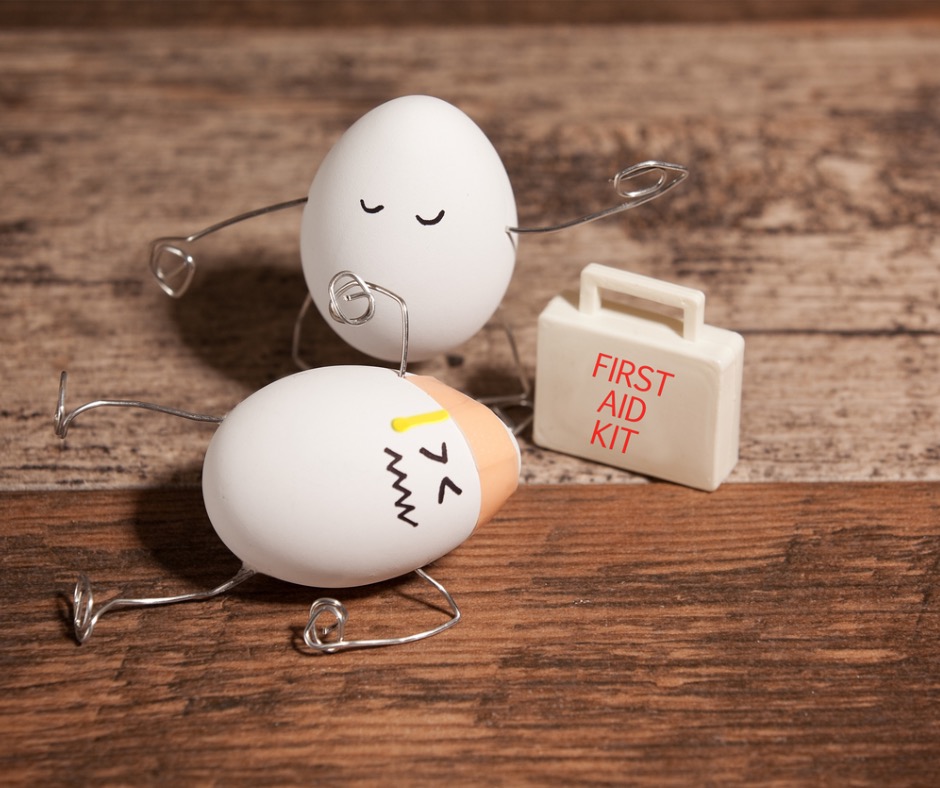Blindsided by Estrangement: Can You Love Your Child Right Out Of Your Life?
Abuse? Neglect? It’s easy to understand why an adult child decides to have nothing to do with a parent who subjected them to either.
Parental alienation from a messy divorce? When kids are forced to choose sides, it’s no surprise that adult-child estrangement is an unfortunate consequence.
But a close family with good kids? A single parent with a strong bond? No wonder parents are confused and caught off-guard to find themselves in a spot normally reserved for “bad” parents.
The growing trend to cut ties with your parents is a major revision of the rules of American family life. Its roots trace back fifty years to a cultural shift emphasizing personal growth and happiness over family loyalty and duty.

But who would have thought a seemingly unrelated economic influence — the hollowing out of America’s middle class — would contribute to the unexpected side-effect of family estrangement?
In the 1990’s and 2000’s, sociologists Sharon Hays and Annette Lareau began observing an all-out investment into children by their middle-class parents. Fueled by anxiety about the future of the American dream, parents were taking no chances to make sure their kids were able to compete for education and jobs — the keys to keeping their kids from falling through the middle-class cracks in the American economy.
But the parental investment wasn’t just financial. It was also emotional, as children came to be seen as a primary source of happiness and meaning. Some sociologists speculate this shift to a “child-centered” society was transferring our unrealistically high expectations of fulfillment from marriage onto what seemed like a surer bet — our kids.

This hands-on parenting model is now the norm for American families, even for parents who can’t afford the significant amount of time and money required to pull it off. “Intensive parenting” is now the aspirational ideal held by all races and classes in American society, according to researchers at Cornell University.
Whether you view intensive parenting as careful and conscientious or anxious and overbearing, the research so far indicates (as expected) there are pros and cons to putting everything into raising your kids.
Perhaps the most unanticipated downside to intensive parenting is adult-child estrangement. I have spent the past ten years working with parents who have given up hobbies, sleep or time with their friends to be the best parent they could, assuming their child would naturally return the same degree of emotional closeness. University of Virginia sociologist Joseph E. Davis calls this expectation the “reciprocal bond of kinship.”
Instead, many parents find themselves dematerialized from their children’s lives into the bewildering terrain of estrangement.
It’s devastating when the one thing you feel best about as a parent — being close to your children — suddenly turns sour. For many parents, it’s like a bad dream on an emotional rollercoaster, alternating from confusion and fear to shame and guilt to righteous indignation and helpless rage. Underneath it all is a profound sense of betrayal and abandonment.
How do you even begin to navigate this landscape?

Going Through Hell? Keep Going.
Estrangement is a journey. It’s more like a marathon, so don’t try to sprint your way through the climate change of your relationship with your adult child. Here are two ways to get started:
1. Don’t make things worse. So you have a chance to make things better.
Many parents’ reactions to being cut off by their adult children are entirely natural. Their initial responses are totally understandable, but they often don’t work and can make things worse. Even more confounding, many of the strategies that do work are counterintuitive. Estranged parents suddenly find themselves in unfamiliar territory.
The rules of family relationships — without their input or awareness — are suddenly up for revision. Parents are dumbfounded to discover that their adult child’s perspective sounds like something, not just from another generation, but even from a different planet. Here’s what I mean:
Say Whaaat?

There’s a saying that “it only takes one person to change a relationship.” There’s been a serious shift in the balance of power, but you may just be getting the memo. Here’s what it says:

2. The pain of estrangement is unavoidable. Suffering is optional.
- Acknowledge that the thing you most want — to get past this awful thing that shouldn’t be happening, so things can get back to “normal” — is probably not going to happen, at least not in the way you envision it.
- The “shift in power dynamics of your relationship” is a nice way of saying there’s a loss of status, power, and influence for you, the parent. It’s humbling, even humiliating, to be put in this position. No one likes to feel vulnerable — it’s like not having any skin– but denying the reality of your vulnerability is dangerous. Why? Because denial of reality will only make you more vulnerable. Here’s why dealing constructively with your very real vulnerability is safer, smarter, and saner:
-
-
- You’re less likely to collapse into a lose/lose victim position.
- You’re less likely to overreact and go on the attack.
- You’re less likely to revert to passive/aggressive, cold war tactics.
-
- Don’t expect your adult child to want to participate in or help you through this process. They will tend to see it as burdensome or manipulative. Seek the help of a therapist experienced in estrangement and do your own work before prematurely pushing family therapy.
Finally, did I mention none of this is easy? Estrangement from an adult child is filled with giant chunks of grief that test the strength and sanity of any loving parent. Offer yourself the support and self-compassion necessary to get through it.
So you’re still standing when the chance to reconnect presents itself.















































